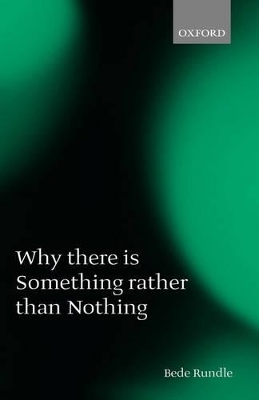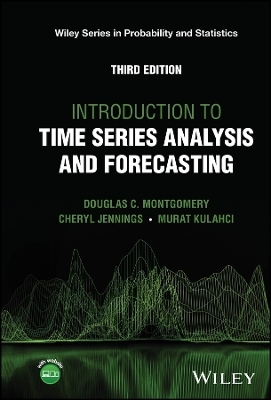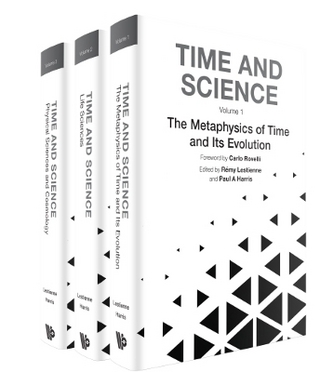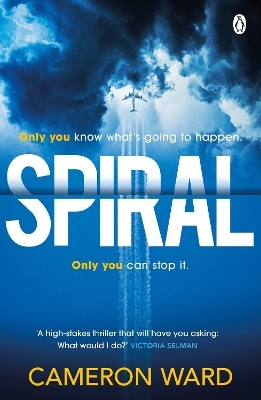
Why there is Something rather than Nothing
Seiten
2004
Oxford University Press (Verlag)
978-0-19-927050-7 (ISBN)
Oxford University Press (Verlag)
978-0-19-927050-7 (ISBN)
Why should there be anything at all? Why, in particular, should a material world exist? The author advances clear, non-technical answers to these perplexing questions. He offers an explanation of fundamental facts of existence in purely philosophical terms, without appeal either to theology or cosmology.
Why should there be anything at all? Why, in particular, should a material world exist? Bede Rundle advances clear, non-technical answers to these perplexing questions. If, as the theist maintains, God is a being who cannot but exist, his existence explains why there is something rather than nothing. However, this can also be explained on the basis of a weaker claim. Not that there is some particular being that has to be, but simply that there has to be something or other. Rundle proffers arguments for thinking that that is indeed how the question is to be put to rest.
Traditionally, the existence of the physical universe is held to depend on God, but the theist faces a major difficulty in making clear how a being outside space and time, as God is customarily conceived to be, could stand in an intelligible relation to the world, whether as its creator or as the author of events within it. Rundle argues that a creator of physical reality is not required, since there is no alternative to its existence. There has to be something, and a physical universe is the only real possibility. He supports this claim by eliminating rival contenders; he dismisses the supernatural, and argues that, while other forms of being, notably the abstract and the mental, are not reducible to the physical, they presuppose its existence. The question whether ultimate explanations can ever be given is forever in the background, and the book concludes with an investigation of this issue and of the possibility that the universe could have existed for an infinite time. Other topics discussed include causality, space, verifiability, essence, existence, necessity, spirit, fine tuning, and laws of Nature.
Why There Is Something Rather Than Nothing offers an explanation of fundamental facts of existence in purely philosophical terms, without appeal either to theology or cosmology. It will provoke and intrigue anyone who wonders about these questions.
Why should there be anything at all? Why, in particular, should a material world exist? Bede Rundle advances clear, non-technical answers to these perplexing questions. If, as the theist maintains, God is a being who cannot but exist, his existence explains why there is something rather than nothing. However, this can also be explained on the basis of a weaker claim. Not that there is some particular being that has to be, but simply that there has to be something or other. Rundle proffers arguments for thinking that that is indeed how the question is to be put to rest.
Traditionally, the existence of the physical universe is held to depend on God, but the theist faces a major difficulty in making clear how a being outside space and time, as God is customarily conceived to be, could stand in an intelligible relation to the world, whether as its creator or as the author of events within it. Rundle argues that a creator of physical reality is not required, since there is no alternative to its existence. There has to be something, and a physical universe is the only real possibility. He supports this claim by eliminating rival contenders; he dismisses the supernatural, and argues that, while other forms of being, notably the abstract and the mental, are not reducible to the physical, they presuppose its existence. The question whether ultimate explanations can ever be given is forever in the background, and the book concludes with an investigation of this issue and of the possibility that the universe could have existed for an infinite time. Other topics discussed include causality, space, verifiability, essence, existence, necessity, spirit, fine tuning, and laws of Nature.
Why There Is Something Rather Than Nothing offers an explanation of fundamental facts of existence in purely philosophical terms, without appeal either to theology or cosmology. It will provoke and intrigue anyone who wonders about these questions.
1. Theology and meaning ; 2. God and explanation ; 3. Causation and necessity ; 4. Creation and conservation ; 5. Essence and existence ; 6. Matter and abstractions ; 7. Mind and agency ; 8. Time and explanation ; Bibliography ; Index
| Verlagsort | Oxford |
|---|---|
| Sprache | englisch |
| Maße | 143 x 223 mm |
| Gewicht | 391 g |
| Themenwelt | Geschichte ► Hilfswissenschaften ► Chronologie |
| Geisteswissenschaften ► Philosophie ► Metaphysik / Ontologie | |
| Geisteswissenschaften ► Religion / Theologie | |
| Naturwissenschaften ► Physik / Astronomie ► Astronomie / Astrophysik | |
| ISBN-10 | 0-19-927050-3 / 0199270503 |
| ISBN-13 | 978-0-19-927050-7 / 9780199270507 |
| Zustand | Neuware |
| Haben Sie eine Frage zum Produkt? |
Mehr entdecken
aus dem Bereich
aus dem Bereich
Buch | Hardcover (2024)
John Wiley & Sons Inc (Verlag)
139,95 €


